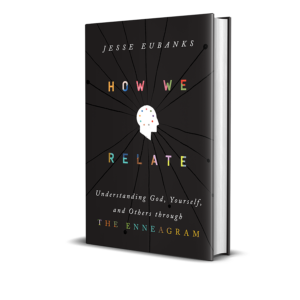What is the Enneagram?
Grow in Self-Awareness and Relational Vitality
2. Find Yours
3. Enjoy Better Relationships
The Enneagram is a powerful and dynamic personality typing system that offers deep insights into human behavior, motivations, and interpersonal dynamics. A mixture of ancient wisdom and modern psychology, the Enneagram categorizes individuals into nine distinct personality types, each with its own set of core motivations, fears, and desires.
At its core, the Enneagram helps individuals understand themselves and others on a profound level, offering a roadmap for personal growth, self-awareness, and transformation. By identifying their Enneagram type, individuals gain insight into their unconscious patterns of thinking, feeling, and behaving, as well as the underlying motivations driving their actions.

Which of the Nine Types Are You?
Here are brief summaries of each Enneagram type, along with links to more detailed descriptions:
- TYPE 1 – THE REFORMER: Known for their integrity, principles, and desire for perfection, Type 1s strive to live according to their high moral standards.
- TYPE 2 – THE HELPER: Type 2s are warm, caring individuals who derive their sense of self-worth from helping and supporting others.
- TYPE 3 – THE ACHIEVER: Driven by success, recognition, and achievement, Type 3s are ambitious, adaptable, and focused on their goals.
- TYPE 4 – THE ORIGINALIST: Type 4s are introspective, sensitive, and creative individuals who seek to understand and express their unique identity.
- TYPE 5 – THE INVESTIGATOR: Known for their analytical thinking and thirst for knowledge, Type 5s are independent, insightful, and curious about the world.
- TYPE 6 – THE LOYALIST: Type 6s are loyal, responsible individuals who seek security and support from their environment.
- TYPE 7 – THE ENTHUSIAST: Type 7s are enthusiastic, adventurous individuals who pursue pleasure and avoid pain at all costs.
- TYPE 8 – THE PROTECTOR: Assertive and strong-willed, Type 8s are natural leaders who value independence, autonomy, and control.
- TYPE 9 – THE PEACEMAKER: Type 9s are easygoing, harmonious individuals who prioritize peace, unity, and connection with others.
Do You Follow Your Heart, Head or Instincts?
The Enneagram Triads are a key aspect of the Enneagram system, offering deeper insights into the underlying motivations and dynamics of the nine personality types. Triads group the types into three categories based on their primary emotional response and coping mechanisms. Understanding the Triads provides a framework for understanding the core fears and desires that drive behavior within each group.

The Body (or Instinctive) Triad: This triad encompasses Types 8, 9, and 1, and is characterized by a primary emotional response of anger or frustration. Often, this anger is a secondary expression of their underlying struggle with guilt. Individuals in this triad tend to cope with challenges by relying on their instincts and gut reactions. They are driven by a need for autonomy, control, and integrity. For Type 8, this manifests as assertiveness and protection; for Type 9, as passive resistance or avoidance; and for Type 1, as adherence to rules and principles.

The Heart (or Feeling) Triad: This triad includes Types 2, 3, and 4, and is centered around a primary emotional response of shame or worthlessness. Individuals in this triad cope with challenges by seeking validation and approval from others. They are driven by a desire for love, recognition, and belonging. Type 2 seeks love and appreciation through caregiving and support; Type 3 through achievement and success; and Type 4 through authenticity and uniqueness.

The Head (or Thinking) Triad: This triad comprises Types 5, 6, and 7, and is characterized by a primary emotional response of fear or anxiety. Individuals in this triad cope with challenges by withdrawing into their thoughts and mental analysis. They are driven by a need for security, certainty, and understanding. Type 5 seeks knowledge and competence to feel safe; Type 6 seeks support and guidance to alleviate anxiety; and Type 7 seeks distraction and stimulation to avoid discomfort.

Understanding the Triads provides valuable insights into how different personality types respond to stress, as well as their core fears and desires. It highlights the interconnectedness of the types and underscores the importance of addressing underlying emotional patterns for personal growth and development. By recognizing our primary Triad and understanding its dynamics, we can gain greater self-awareness and empathy for ourselves and others, fostering deeper connections and more fulfilling relationships.
HAVE MORE QUESTIONS?
Contact us! We’d love to answer your questions!
Custom workshops are available upon request.







